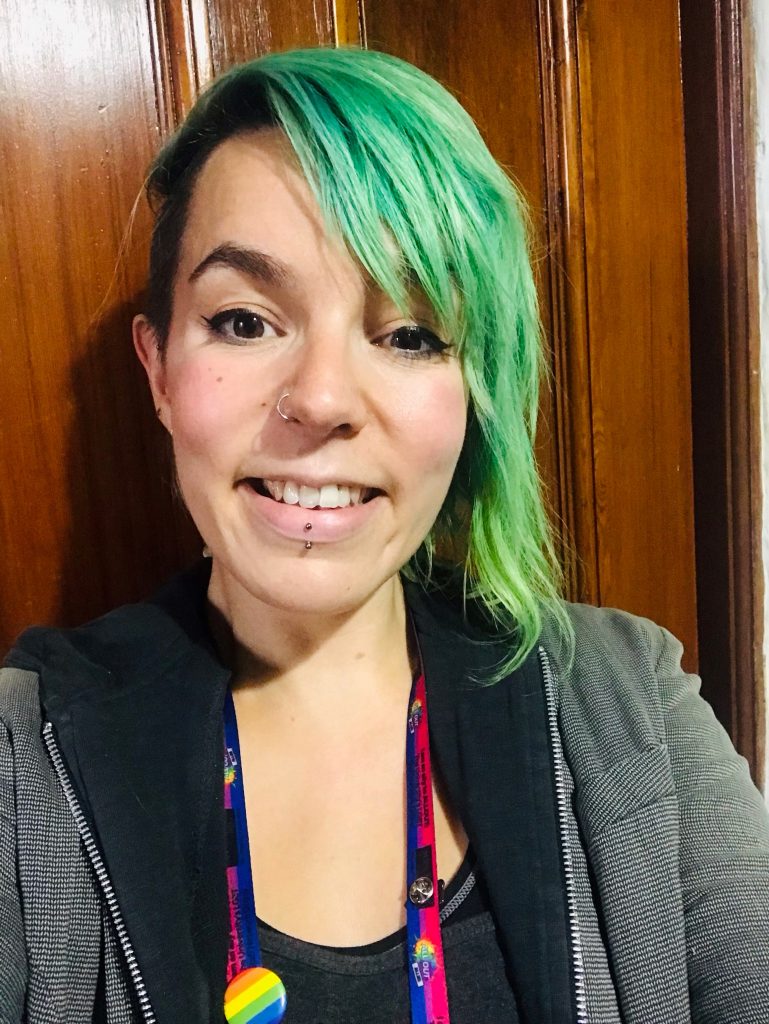
Stephanie Danson: Active Bystander
This month in the EDI Diversity Calendar is focused on Active Bystander. At The University of Manchester, we want to encourage an environment of inclusion where everyone feels valued and respected and can work and study in a safe and supportive environment. Part of this is to encourage staff and students to challenge and report problematic behaviour such as microaggressions, discrimination, bullying and harassment and hate crime.
Being a bystander to a problematic situation can happen to anyone. Every day, situations unfold around us as we go about our everyday life. Most of the time, we don’t need to intervene but, chances are that, at some point we will encounter a situation where we feel we should step in.
When we see a situation unfolding where we witness inappropriate or problematic behaviour, it can be hard to know what to do. We might feel that it’s not up to us to intervene, we might be in a rush or we might be unsure of the best course of action to take. However, according to a psychological theory called ‘Bystander Effect’, people are less likely to help if other people are nearby which means that, if you don’t intervene, it is quite possible that no one else will either.
This is why we’re encouraging everyone to be an Active Bystander. The role of an Active Bystander is about taking proportionate action to deal with a situation which can stop things from escalating and encourages an environment of psychological safety, inclusion and belonging.
Below are the 5 D’s to help you think about how you can be an Active Bystander:
Delegate:
The priority first and foremost is safety.
If you don’t feel safe to intervene or someone is in immediate danger, call the Police (999) or Campus Support and Security (0161 3060 9966). Download the Manchester SafeZone App to contact Campus Support and Security immediately. You can also use Report and Support to report microaggressions, discrimination, bullying and harassment and hate crime. You can contact the EDI Team with any queries about the available support.
Direct Action:
If after assessing the situation you feel it is safe to intervene and unlikely to escalate matter, then intervene.
Check in with the target of the action/behaviour and ask if they’re OK? Do they want to discuss what happened? What do they want to do about the situation? Then talk to the person perpetrating. Ask them clearly and respectfully to clarify their words or actions. Let them know why you find their behaviour problematic.
Don’t try to speak on behalf of an individual or group.
Document:
If you see problematic behaviour such as harassment, bullying or hate crime, document the incident:
- Make notes, keep a diary, record an incident on your phone (if it is safe to do so) or take a screen shot if it’s online.
- Keep a record of the time, date, situation and/or behaviour
- If possible check with the target before passing on the information
- DON’T POST THE INCIDENT ONLINE as this can interfere with potential investigations.
Disrupt
Shift focus away from the person/people that the behaviour is directed towards by changing the topic of conversation: Start a conversation with the person/people that the behaviour is being directed towards. Ask the person that the behaviour is directed towards to help you with something, this could be asking for help with a task.
Delay
Delay responding until you have more information.
- Talk to the target and see if they’re ok. Ask how they feel about the situation.
- Ask them if there’s any way you can support them.
The more empowered we feel to challenge problematic behaviour, the more we can work to ensuring our campus is a safe and inclusive place to work and study.
If you would like to know more about booking Active Bystander training for members of your team or if you want more information on the available support, please contact the EDI Team: equalityanddiversity@manchester.ac.uk
Stephanie Danson – Project Officer in the Equality, Diversity and Inclusion Office.






0 Comments